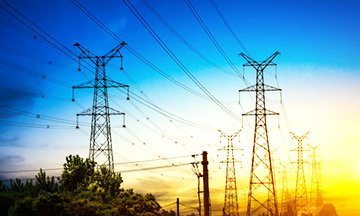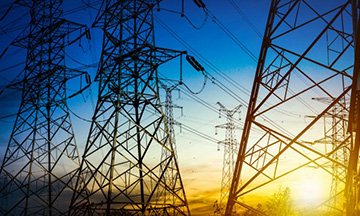Power System Blackouts and Restoration
| Date | Venue | Duration | Fees | |
|---|---|---|---|---|
| 28 Apr - 02 May, 2024 | Doha | 5 Days | $4950 | Register |
| 06 May - 10 May, 2024 | Istanbul | 5 Days | $5695 | Register |
| 01 Jul - 05 Jul, 2024 | Paris | 5 Days | $5695 | Register |
| 05 Aug - 23 Aug, 2024 | New York | 15 Days | $14925 | Register |
| 07 Oct - 25 Oct, 2024 | Nairobi | 15 Days | $13500 | Register |
| 17 Nov - 21 Nov, 2024 | Riyadh | 5 Days | $4950 | Register |
Course Overview
General blackouts are instigated by not investing into your infrastructure, inadequate planning, lack of incident planning and not evaluating your power system voltage requirements and operational conditions appropriately. The reliability of any power distribution system is essential to avoiding power outages.
The consequence of not planning for power outages can have dramatic impacts such risk to life through essential services like hospitals or telecommunications services not being able to function properly, loss of income, intolerable power quality, and other transmission challenges.
Today, power systems operate with low-security thresholds due to the prioritisation of the electricity market deregulation, an increase in load consumption, and the hardships in building new transmission lines and large power plants. Consequently, the vulnerability of power systems becomes a very crucial issue and the likelihood of large blackout tends to increase, as confirmed by the various incidents in the past.
Therefore, mastering the knowledge of different topics related to blackout inception and power system volatility has become essential for researches and engineers involved inpower system planning, operation, and control. This course has been designed to ensure that you understand these issues and plan ahead to mitigate the risks to your power infrastructure.
What are the key components of this “Power System Blackouts and Restoration” course? This program is designed to help power system professionals, planners and engineers gain ground on the power system blackout and restoration.
This course provides an up-to-date description of the restoration methodologies and implementation strategies practised internationally. Participants will learn how to identify precursors for blackouts and will practice the steps necessary to prevent them from occurring.
The course will concentrate on structures of blackouts, uncertainty factors, modelling and evaluation tools, proactive and restorative measures, and service restoration.
This Zoe training course will teach you the causes, prevention, automatic protection schemes, graphic displays, and system recovery procedures of power systems.
Course Objectives
Upon completing this Power System Blackouts and Restoration course successfully, participants will be able to:
- Analyse power quality
- Gain a comprehensive knowledge of power system blackouts and prevention
- Determine the blackout concerns and review recent blackouts, its causes and lessons learned from these incidents
- List methods used to improve power quality
- Identify the various instability mechanisms and transients and analyse the cold inrush current effects on blackout
- Discuss analysis concepts when examining potential power quality and interruption issues
- Assess power outages for potential risks
- Understand how power outages can start and cascade
- Apply procedures to ensure power continuity
- Recognise the role of induction motors in triggering blackouts
- Employ blackout preventive measures and identify the process of monitoring and control
- Use a structured approach on system restoration planning in consideration to the tools, guidelines, techniques, and procedures for system restoration plan implementation
- Consider a variety of planning techniques for Power Blackouts
- Consider the use of SMART technology
Training Methodology
This collaborative Power System Blackouts and Restoration training program will comprise the following training methods:
- Lectures
- Seminars & Presentations
- Group Discussions
- Assignments
- Case Studies & Functional Exercises
Similar to all our training programs, this course also follows the ‘Do-Review-Learn-Apply’ model.
Organisational Benefits
Companies who nominate their employees to participate in this Power System Blackouts and Restoration course can benefit in the following ways:
- Designers, Engineers, Technicians and Responsible Persons can gain knowledge of current practices when looking to ensure reliable power supplies.
- Designers, Engineers, Technicians and Responsible Persons can obtain knowledge to understand how Blackouts occur and how to mitigate against such occurrences
- Use knowledge gained to reduce the negative impact on customers who face power outages
- Key personnel can prepare contingency plans for power quality issues and potential power outages
Personal Benefits
Individuals who participate in this Power System Blackouts and Restoration course can gain from it in the following ways:
- Learn new practices to ensure power quality and reliability
- Appreciate and understand power quality issues such as blackouts and poor-quality power
- Keep up with late-breaking developments in Power System Blackouts and Restoration by studying new literature and other sources of information
- Benefit from a tailor-made academic program for technicians or equivalent workforce involved in Power System Blackouts and Restoration
Who Should Attend?
This Power System Blackouts and Restoration course would be suitable for:
- Generation and transmission planners
- Protection engineers
- Electrical construction engineers
- Power system analysts and engineers
- ISO/RTO technical staff
- Commissioning Supervisors
- Economic and management consultants
- Operations supervisors
- Power developers and marketers
- Power exchange personnel
- Regulatory staff
Course Outline
MODULE 1: OVERVIEW OF BLACKOUT CONCERNS
- Overview Blackout Causes
- Blackouts, Causes and Lessons Learnt
- Self-organising Criticality and the Edge of Chaos
- Causes of Blackout
- Instability and transient issues
- Instability Mechanisms & Transients
- Cold Inrush Current Effects on Blackout
- Induction Motors Role in Triggering Blackout
MODULE 2: STABILITY CONTROL
- Angle Stability Control
- Voltage Stability Control
- Power system analysis
- Blackout preventative measures
- Blackout prevention analysis
- VAR Compensation
- Voltage stability
- Reactive Capability Limitation of Synchronous Machines
- Optimising Generator Reactive Power Resources
MODULE 3: BLACKOUT PREVENTIVE MEASURES
- Wide-Area Monitoring and Control
- General & Network Voltage Control
- Compliance with Reliability Standards
- Loads Voltage Stabilisation
- Static VAR Compensators
- Voltage Stabilisers
- AGC Implementation
- Role of HVDC Systems in System Stability
MODULE 4: RESTORATION OVERVIEW
- Power System Restoration-First Task Force Report
- Analytical Tools for Power System Restoration-Conceptual Design
- System Operations Challenge
- Protection Relays Issues During Restoration
- Overvoltage Control During Restoration
- Power System Restoration Issues
- Asymmetry Issues in Power System Restoration
- Steam Plant Start-up and Control in System Restoration
- Heuristic Approaches to Distribution System Restoration
MODULE 5: SPECIAL CONSIDERATIONS IN SYSTEM RESTORATION
- Power System Restoration-The Second Task Force Report
- System Restoration and Black Start Capabilities
- Tie Line Utilisation During Power System Restoration
- Using HVDC Links in Power System Restoration
MODULE 6: NEW APPROACHES IN POWER SYSTEM RESTORATION
- Knowledge-Based Systems
- Real-Time Considerations
- Power System Restoration with an Expert System
- Expert System Requirements for Power System Restoration
- Algorithm for Service Restoration in Distribution Systems
MODULE 7: BLACKOUT & RESTORATION TRAINING
- Development of a Large-Scale Dispatcher Training Simulator and Results
- Dispatcher Training Simulators-Lessons Learned
- An Advanced Transportable Operator Training Simulator
- Restoration Simulator Prepares Operators for Major Blackouts
- Bulk Power System Restoration Training Techniques
- Evaluating a Restoration Tool Using an Operator Training Simulator
MODULE 8: SYSTEM RESTORATION DESIGN
- Policies for Restoration of a Power System
- Analytical Tool Requirements for Power System Restoration
- Role of Interactive and Control
- Development of a System Restoration Plan
- Deploying the Plan
- Power System Restoration Planning
- Estimating Restoration Duration
MODULE 9: OPERATORS VIEW AND SUPPORTING TOOLS
- Graphic Displays and Human Factors Engineering
- Human Error Reduction Techniques
- Risk Management Software











